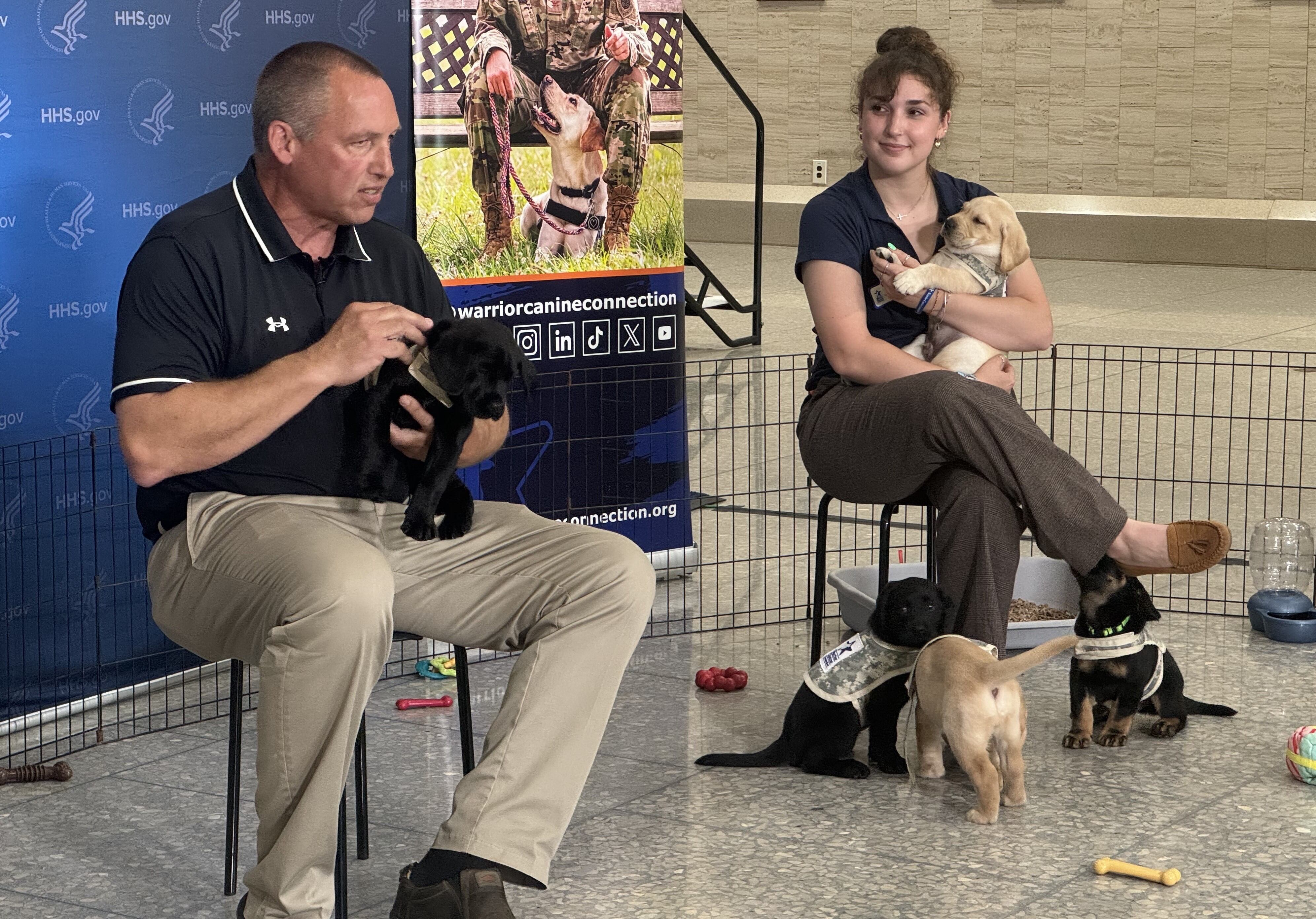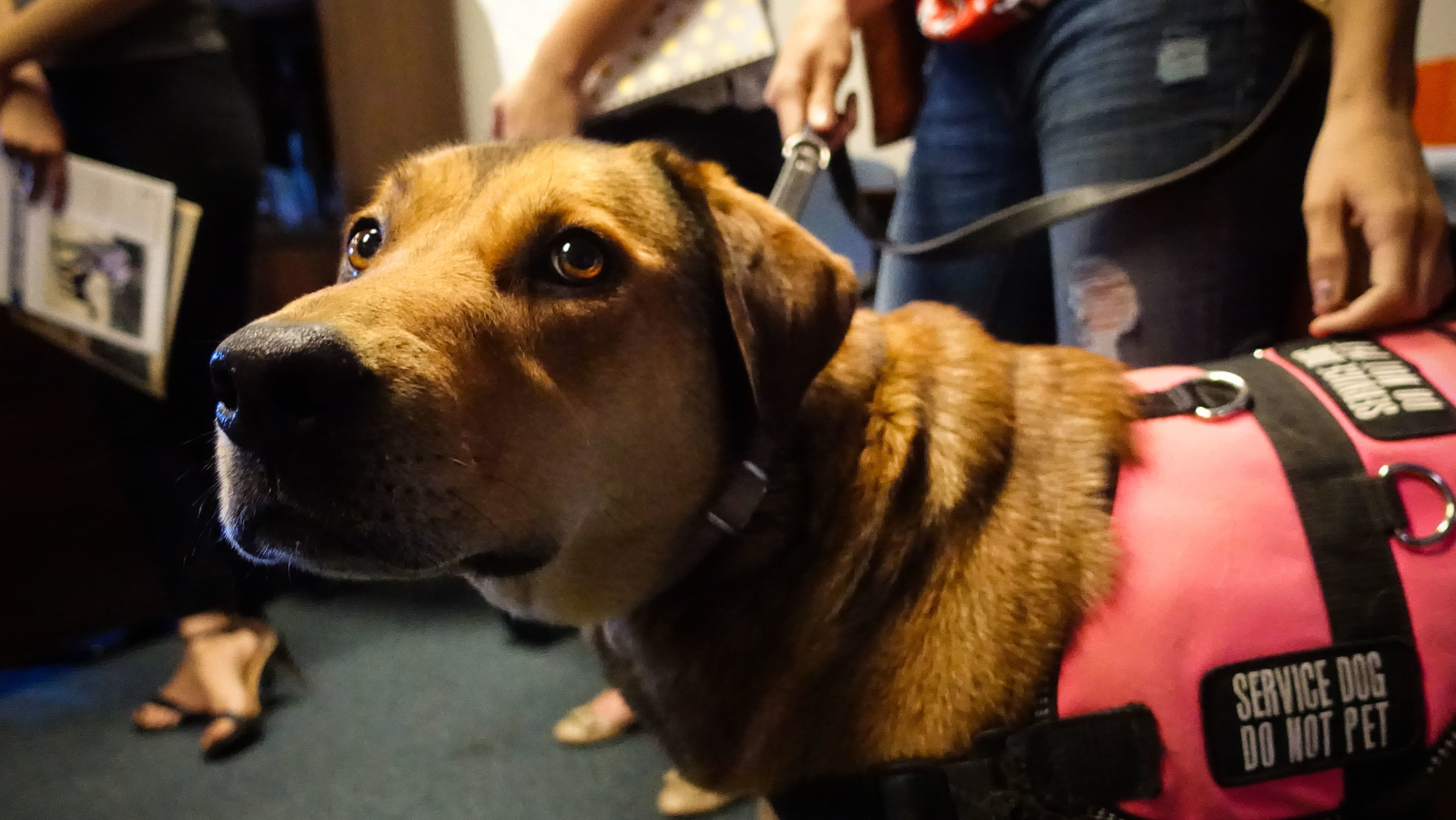Sometimes, life can be stressful, and sometimes, to manage one’s mental health, one might need a little puppy love.
That’s what Warrior Canine Connection, a Maryland-based nonprofit that trains service dogs to provide recovery care for veterans and military families, highlighted Wednesday during a live “puppy cam” event with officials from the Department of Veterans Affairs and the Department of Health and Human Services.
About half a dozen six-week-old puppies scurried around the HHS lobby on their little paws while Dr. Shereef Elnahal, the under secretary of health for the Department of Veterans Affairs, emphasized the rewarding mental health outcomes that veterans can receive from interacting with canines.
“We have to start quantifying and explaining the incredible emotional and clinical benefit that these dogs offer to veterans,” he said, as one of the young pups lightly nibbled on his shoelace.
The VA and other groups offer a variety of resources for veterans to tackle mental health challenges, and the use of canines is increasingly becoming a desired option to help make a difference for those who may need a complimentary, albeit furry, form of support.

After about two years of training, service dogs with Warrior Canine Connection, which was created in 2011, have gone on to work at various VA and military treatment facilities, said Rick Yount, the executive director of the organization.
Yount detailed memorable examples of recovery among veterans he’s witnessed thanks in part to the healing power of the dogs. In one instance, he said a Marine veteran at an inpatient program for their severe post-traumatic stress disorder was struggling with serious night terrors.
“He would go three nights, no sleep, and then crash. There was no restorative, healthy sleep,” he said.
But after getting approval to allow one of the dogs to stay overnight, Yount said the veteran finally got the sleep he needed.
Elnahal also highlighted at the event, which coincided with Mental Health Awareness Month, a fairly recent VA program known as Puppies Assisting Wounded Service Members, or PAWS. That pilot initiative looks to break stigmas around mental health care and provide canine training to eligible veterans diagnosed with post-traumatic stress disorder. Yount said he and his team are providing dogs to some of the five sites involved.
The VA needs to continue exploring not just evidence-based research, Elnahal noted, but also an experiential review into how dogs improve veterans’ mental health as the department looks to validate funding the program, which some veterans described to him as lifesaving.
“There’s a case to be made that there’s a real clinical benefit, not just around supplemental treatment for conditions like PTSD, but there’s also just gratification that so many veterans have knowing that they’re training a dog that will go and help another veteran,” he said, adding that there are hopes to expand the PAWS program to additional VA medical centers.
RELATED

“What can be better than puppies,” said HHS Assistant Secretary for Health Adm. Rachel Levine, whose agency now has its own facility dog trained through Warrior Canine Connection, a two-year-old Labrador Retriever named Lt. Cmdr. Abigail.
Those interested in and eligible for canine care through Warrior Canine Connection can visit the organization’s website to learn more about applying for a dog. And those just looking to add a bit of paws-itivity to their lives can check out their ongoing, addictively adorable puppy cam.
Jonathan is a staff writer and editor of the Early Bird Brief newsletter for Military Times. Follow him on Twitter @lehrfeld_media




